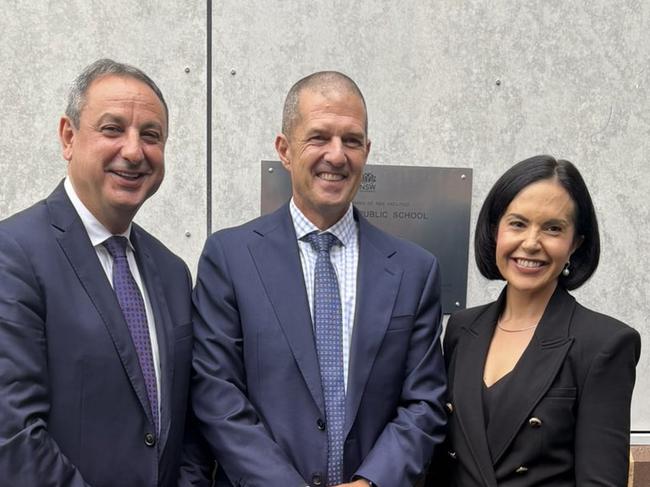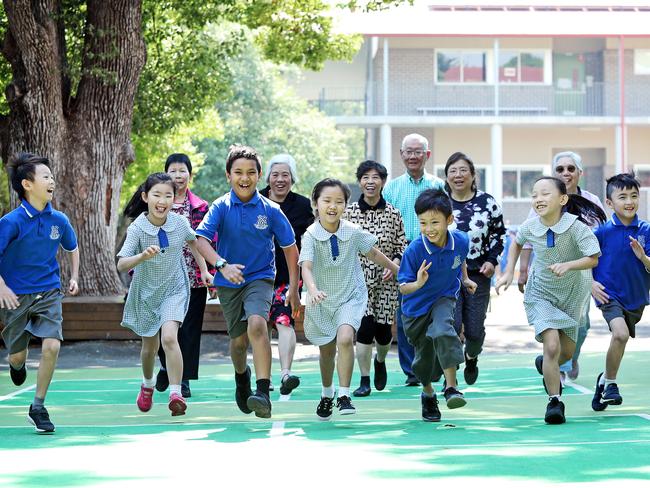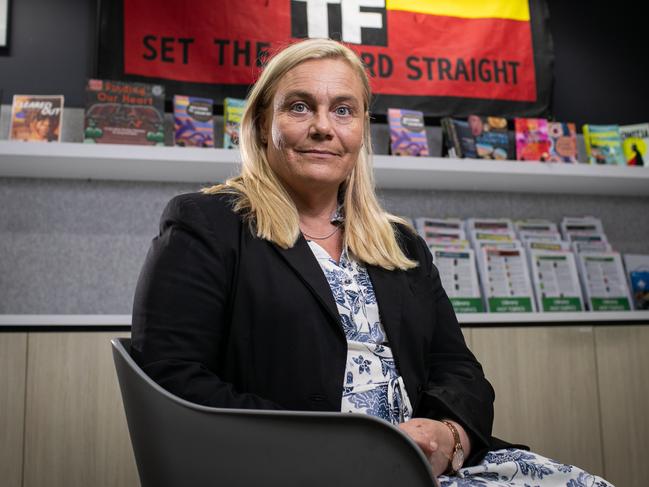Behind the scenes of controversial pupil-free day for NSW public school teachers
NSW students returned to public schools on Wednesday after two pupil-free ‘school development’ days. While you were scrambling to find childcare, here’s what your child’s teachers were doing.
Education
Don't miss out on the headlines from Education. Followed categories will be added to My News.
While parents across NSW scrambled to find additional care for their school-aged children this week, educators were stuck wading through online courses that some have argued were a pointless waste of their time and expertise.
NSW public school teachers – who now benefit from eight pupil-free “school development” days each year, more than their colleagues in any other state or territory – returned to their staffrooms on Monday to undertake training on “high potential and gifted education”.
The Department of Education’s policy to “challenge” gifted children in their learning has been in place since 2021, but Education Minister Prue Car and Secretary Murat Dizdar have recently doubled down on the program as a means to prevent more students drifting away from the public system and into private schools.
In a video message Mr Dizdar told public school teachers they face a “competitive landscape” and “prospective parents need to see that high potential gifted opportunities are not just available in other sectors”.
Eastwood Public School principal Michael Kammerer said the five-hour training day and its 43 optional courses would assist schools in their role as a “nursery” for talents that might eventually see students enrolled at nearby academic, sporting and performing arts selective high schools.

“As a primary school, it’s essential that we actually identify these students and give them that solid foundation in their HPG areas, so they can then further their careers or their interests,” he said.
However the mandatory training has raised the hackles of some rank-and-file teachers who say the two 90-minute online courses were little more than a box-ticking exercise that undermined their existing knowledge and expertise.
One head teacher said fellow staff completed their online training in less than three minutes by simply clicking through the screens, describing the “one size fits all” content as “general and vague” and the “whole process professionally insulting”.
“It’s just so disappointing as a professional to have such low-grade cookie-cutter professional development,” he said.
“The extra time is a gift that is being wasted. Maybe if I was a beginning teacher it might hold some value but even the beginning teachers said this is what they already know from university.”

Education researcher and former schoolteacher Jane Hunter said she was “saddened” by the Department’s reliance on in-house resources and research, and has heard from numerous teachers that school development days are wasted on “perfunctory” training on fire safety or sun safety.
“The Department is researching itself, which is akin to the police investigating the police,” Dr Hunter said.
“Teacher researchers aren’t really called in to build their capacity anymore.”
On Tuesday school staff once again returned to student-less hallways, this time for “teacher-led” activities and lesson planning. It marked the sixth pupil-free this year so far.
NSW Teachers Federation deputy president Amber Flohm defended the additional days in which working families must find alternative care arrangements as “vital”, while sympathising with parents.

“As teachers, many of us are parents too, so we understand the childcare challenges these days create which is why we fully support the decision of schools to provide these dates well in advance last year to help with planning,” she said.
While the union “(doesn’t) automatically support all of” the Department’s system-wide priorities, “high potential and gifted students ... deserve appropriate attention”.
University of Newcastle Laureate Professor in education Jenny Gore said school development days hold “real value” for teachers who are otherwise “isolated” in their work - without them, teacher growth would be limited.
However, the effectiveness of pupil-free days lies in the quality of the professional development being carried out, she said.
“For it to be effective, it really needs to build knowledge, be motivating, impact practice and be embedded ... teachers are not going to act on it if they are not motivated,” Dr Gore said.
“That’s where one-day initiatives can miss the mark.”





